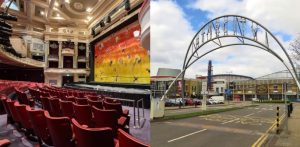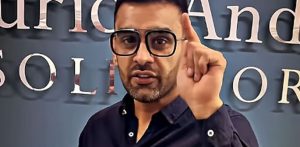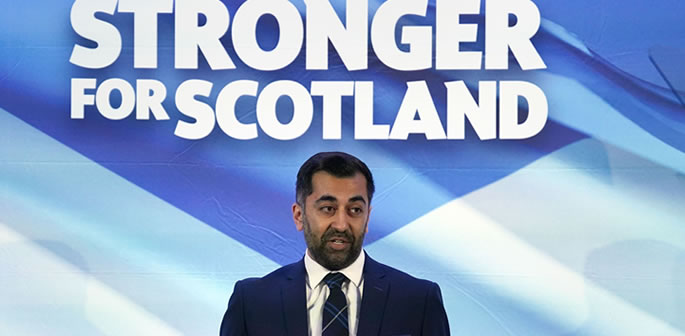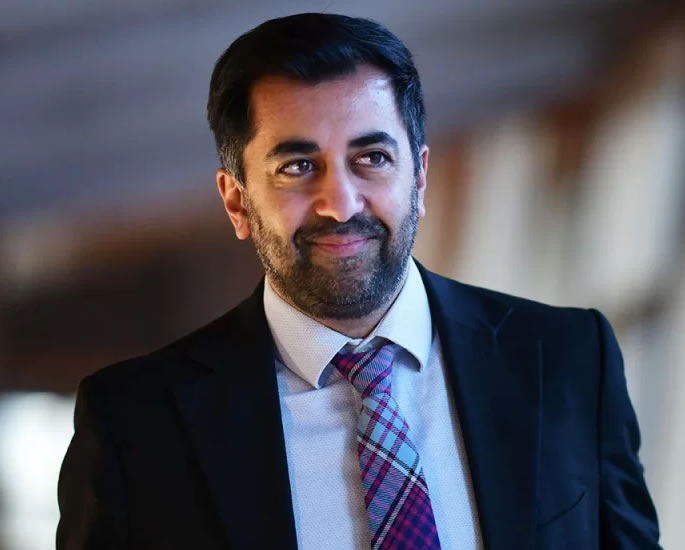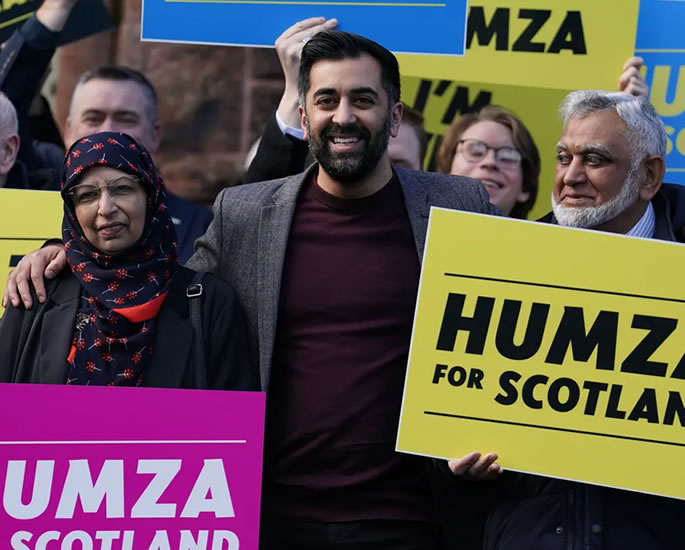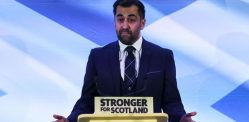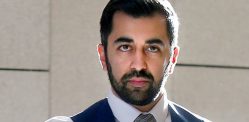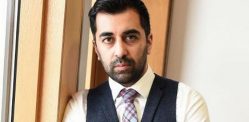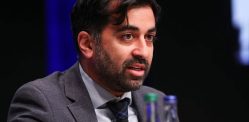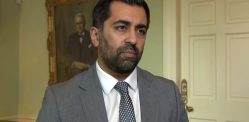"which brought me to where I am today.”
After winning the Scottish National Party (SNP) leadership race, Humza Yousaf officially became Scotland’s First Minister, winning 71 votes.
He became the first ethnic minority to be appointed to the role.
In his first speech, Humza Yousaf spoke about his vision of a new government and how he will “always fight” for people’s rights.
He also said social justice is important to him – as is making Scotland a “fairer and wealthier nation”.
But the question among those unfamiliar is who is Humza Yousaf and how did he rise to the ranks to high office in Scotland?
Humza Yousaf is a Pakistani-origin politician from Glasgow.
He is the son of first-generation immigrants who came to Glasgow in the 1960s.
His mother was born into a South Asian household in Kenya but was forced to leave the country due to an increase in violence towards the South Asian population.
His father was originally from the Pakistani village of Mian Channu, Punjab.
Mr Yousaf’s education began at Glasgow’s Hutchesons’ Grammar School.
He later attended the University of Glasgow to study politics and joined the SNP in 2005 after hearing an anti-war speech by former SNP leader Alex Salmond.
Venturing into Politics
His convictions were further deepened after another speech by the mother of Gordon Gentle, a 19-year-old boy from Pollok, who’d been killed by a roadside bomb in Basra.
It struck Mr Yousaf that only independence would prevent Scotland from being dragged into an illegal war
He began his campaign in Glasgow’s Clydebank, the neighbourhood where his paternal grandpa worked in a sewing machine factory.
Mr Yousaf said: “I see my ancestral roots as being not just Pakistani but running through Clydebank, which brought me to where I am today.”
An SNP insider at Westminster stated that Humza Yousaf’s bold move to the top of the leadership pyramid is going to see “radical change”.
The source said: “He is seen as someone who incarnates radical change.
“He is saying radical change is what I am. It is what I represent.”
Humza Yousaf worked for the late Bashir Ahmad, the first non-white member of Scottish Parliament (MSP), who had immigrated from Pakistan in the early 1960s and had first worked as a bus driver before the SNP came to power in 2007.
Mr Yousaf has said that throughout their two years of interaction, Mr Ahmad transformed into a mentor who guided him rather than lecturing him on what to think.
Atif Ahmad, Ahmad’s son, claims that his father thought of Mr Yousaf as a third son.
Atif said:
“He is very well-mannered, a good listener, and conscientious in his work. He also took advice well.”
After Mr Ahmad passed away, Alex Salmond hired Humza Yousaf as his assistant.
Atif Ahmad recalled the moment his father passed which left Yousaf without the guidance of his trusted mentor:
“The SNP could just have let Humza leave.
“They didn’t want that to happen. They saw him as someone who had talent.”
Humza Yousaf was elected as an MSP in 2011 and took his oath of office in both English and Urdu.
He ascended through the political ranks swiftly but erratically.
In 2016, while serving as the transport minister, he was fined £363 for operating a friend’s vehicle without insurance.
When he was appointed justice minister in 2018, he sparked even more controversy with his hate crime bill.
This muddled piece of legislation has not yet been signed into law, but its prohibition on “stirring up hatred” has sparked bitter discussion over the right to free expression.
His performance as health secretary has also come under scrutiny, particularly concerning accident and emergency waiting times.
Despite his spurs of unpopularity during his time in politics thus far, Humza Yousaf has pledged to be the nation’s “first activist” during his leadership campaign.
Activism
Humza Yousaf has frequently discussed how 9/11 transformed his life and led to his political enlightenment in interviews.
At the time, his classmates at Glasgow’s Hutchesons’ Grammar School were asking him things like:
“Why do Muslims hate America?”
He learned more about his religion and cultural background as a result.
By 2003, he was protesting in London against the American-led invasion of Iraq.
He said: “We joined more than two million others who took to the streets to voice our anger at what was an illegal invasion predicated on a lie.”
Mr Yousaf’s talent for persuasion was immediately apparent to Akhtar Khan, a Glasgow activist who has known him since his school days when they played football together in Queen’s Park and again when they both volunteered at the UK charity Islamic Relief.
Mr Khan said: “His wittiness and humour helped because it made him likeable.
“He could attract people because they were attracted to him as a person.”
“The rest of us were quite in-your-face and a bit too passionate.”
Roza Salih, an SNP councillor for Greater Pollok who gained notoriety as a young girl fighting for the rights of asylum seekers, first encountered him in 2015 at a demonstration for refugee rights.
She remarked: “He’s always spoken and turned up.
“For many people, that comes across as leadership.
“People understand that they are part of the community. Humza understands people from different backgrounds.
“He has that understanding of people’s struggles.”
According to a Sky News poll, support for Scottish independence fell to 39% across the nation as the leadership contests progressed.
Back in his Silverburn area of residence in Scotland, it is evident that although Humza Yousaf is liked for his friendliness and his witty Glasgow banter, he would find it difficult to rekindle the independence movement on more important concerns.
Humza Yousaf declared that he would redouble his efforts to secure Scotland’s independence after being chosen as the SNP’s leader.
He said: “The people of Scotland need independence now more than ever before, and we will be the generation that delivers it.
“I was determined then, as I am now, as the 14th leader of this great party, that we will deliver independence for Scotland – together as a team.”
Shortly after it was announced that Humza Yousaf would take over as SNP leader, Prime Minister Rishi Sunak rejected his request for a second vote on Scottish independence.
However, Mr Sunak expressed that he “looks forward to working” with Mr Yousaf.
The most recent vote on Scottish independence was held in a referendum in 2014.
Voters narrowly chose to stay in the UK, according to the results of the final tally of ballots.
With Brexit, the debate over independence reemerged fiercely as Scottish officials expressed their desire for their nation to remain in the EU.
The question of whether Humza Yousaf’s time in office will achieve an independent Scotland is yet to be determined.









